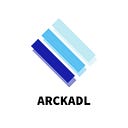Arckadl Use Case: How Blockchain Works in Supply Chain
Today’s supply chains are more complex than ever before, with links and information existing between parties that are geographically dispersed worldwide. The resulting complexity and lack of transparency into a supply chain’s inner workings have resulted in many looking to blockchain as the potential solution to transform the logistics industry. This industry is also believed to benefit from growing trends which suggest responsible sourcing and better visibility into trusted data are two trends consumers and supply chain participants value.
Even with pilots in place, many still wonder just how far off the widespread adoption of blockchain in supply chain is since it seems to be only the large enterprises that have embraced this new technology. Our belief? It is only the availability of the technology in a cloud-based solution like Arckadl, that is holding blockchain back from supply chain use cases. Therefore, a solution may be right around the corner.
How Blockchain Can Help Supply Chains
At a basic level, blockchain is a distributed, digital and encrypted ledger that was initially developed to support cryptocurrencies like Bitcoin. More recently, the technology has become known as a platform for trusted data exchange that is believed to greatly strengthen traceability for logistics, manufacturing and procurement.
This is due to the steps that make up each transaction. In layman’s terms this steps can be broken down into:
- Two parties initiate a transaction
- An encryption code is assigned
- Transaction is verified
- A block is created
- A new block is added to the blockchain, linking it to the block before and the block after
- Ledger is updated
Once the ledger has been updated, the blockchain contents are stored on every device in the chain and are managed without a central authority. With one single source of truth for all entities within the blockchain, businesses gain a 360 degree view of their entire supply chain with complete trust that no changes can be made to information saved onto the block.
Since data is involved in virtually every aspect of a business, applications in the supply chain range from exchange agreements, tracking and payment opportunities. With a combination of public and private blockchains, the Arckadl platform allows all parties to access necessary information, reducing communication and transfer data errors. As a result, less time can be spent on data validation, and more time can be spent on value-added activities.
Examples of Blockchain in Supply Chain
To get an idea of what blockchain in the supply chain looks like in action, we have defined a few existing use cases. In the food industry reliable records ensure precise end-to-end tracking needed to prove ethically-sourced food products and locate where food-borne illnesses and cross-contamination may have been contracted. The World Health Organization states that one in ten people still fall ill due to contaminated food, with hundreds of thousands dying from these diseases. Since the blockchain can store information about where a food product was sourced through to its delivery to the end consumer, transmission can be easily traced back to the source. Similar variations of this solution are currently being piloted by Dole and is expected to be completely rolled out by 2025.
Consider how this solution can be applied in a vastly different industry, fashion. Taking similar concepts of traceability, designer Martine Jarlgaard, has piloted the first blockchain-powered supply chain in the fashion industry to prove that garments can be tracked from production to wear by any consumer, proving that garments are produced in acceptable working conditions.
Piloting a Blockchain Solution For Your Business
To stay competitive in an ever-changing global ecosystem, a timely technological solution to manage amounts of data from thousands of sources is required. As organizations continue to consolidate data cost and network management, cloud-based blockchain solutions like Arckadl will continue to gain popularity. This results from businesses receiving this technology as a usage based service that eliminates the development cost of this technology, making it advantageous to introduce this technology into existing supply chains.
What do you think? Is a cloud-based blockchain platform the solution to today’s complicated supply chains? Let us know why or why not in the comments below.
